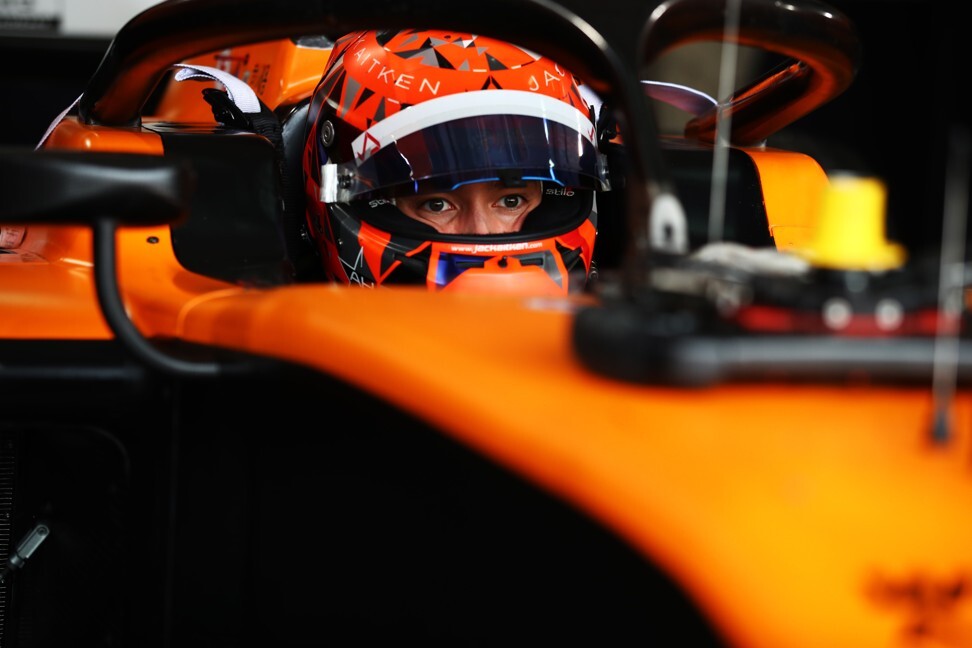
Formula 1: British-Korean driver Jack Aitken open to it all after history-making debut – ‘there are other options available’
- The 25-year-old reflects on a ‘strange’ Covid-19-impacted year which ended with a ‘positive takeaway’
- Aitken still in talks with Williams but unlikely to return to Formula 2; ponders Formula E and Le Mans
After British-Korean driver Jack Aitken made history in his Formula One debut with Williams in December, fans across two continents eagerly await his next move.
But like much of 2020, it is nearly impossible to predict the future. The 70th F1 World Championships is hot off the heels of a truncated season and it looks to be a quiet winter in lockdown for the 25-year-old London native.
“It was a quite a strange year with a very slow start. We were lucky enough that we actually got in pretty much our full season of racing, albeit it was delayed and the schedule quite compressed,” said Aitken, who became the first driver of Korean heritage to race in F1.
“That made for a very hectic six or seven months. It wasn’t the year that I really wanted, so to finish the year by making my debut in F1 was a really nice, big positive to take away from 2020.”
Now that the Covid-19-impacted season is over and he can enjoy the creature comforts of home – Oxford for now – Aitken has finally had the chance to weigh his options.
“Well, first of all, nothing has been decided about what I’m going to be this year. We’re quite deep into discussions on a few different fronts,” he said.

“I want to keep my mind open because I’ve driven single-seaters and come up with Formula 3, Formula 2, Formula 1 for a long time. There are other motorsport options available. Whether that’s in electric series, like Formula E, or going into endurance and going to the big races, like the Le Mans 24 Hours. I want to keep my mind open to possibly expand into those areas.
“I have a great relationship with Williams and certainly we’re still in discussions there. I don’t think I’ll be racing Formula 2 next season because of the budget requirements. It’s just too difficult for us; we don’t have the resource to be able to do that endlessly. But hopefully that means I’ll get to do something new and exciting this year.”
Aitken spent last year as a reserve driver for Williams while also representing Campos Racing in Formula 2 – the F1’s feeder series. It was his third season in the championship but never has a season campaign been marred by such uncertainty given the pandemic.
“It has been quite different, obviously, with the regular testing and almost paranoia of avoiding the virus because – not to much from a safety point of view – but accepting that you can have cases where it can be quite debilitating.
“Most of the time if you’re a young, fit athlete you’ll be OK if you get Covid-19. But it’s a question of your career – can you afford to miss two or three races? The answer is really no. So you become overly cautious, especially being in public,” he said, adding that having no crowds is “quite sad”.
Being a reserve driver in itself requires both patience and consistency – the ability to step in at the drop of a hat when the two main drivers are injured, unavailable, or have, for example, contracted a contagious coronavirus.
“The role is just to be ready. It’s quite an odd situation because I’d raced in Formula 2 last year which kept me busy, but there are still times where F2 don’t race because it’s a shorter camp than F1. I’m left looking at F1 from the sidelines and it’s a weird sensation of having to be ready for that 0.01 per cent chance that you have to be called in,” Aitken said.
“Obviously this [past] year the chances increased, and I got the call just a couple of days before the weekend in Bahrain saying there was an issue with [Lewis] Hamilton and the knock-on effect meant I would be racing. Suddenly you have to dip into a completely different mindset of remembering all the simulator training you’ve been doing, training for this moment, and really engaging in the idea of racing that weekend.
“It was just a whirlwind. It kept me very busy leading up to the weekend which almost made it easier. Then you arrive at the track and it’s time to get going.”

